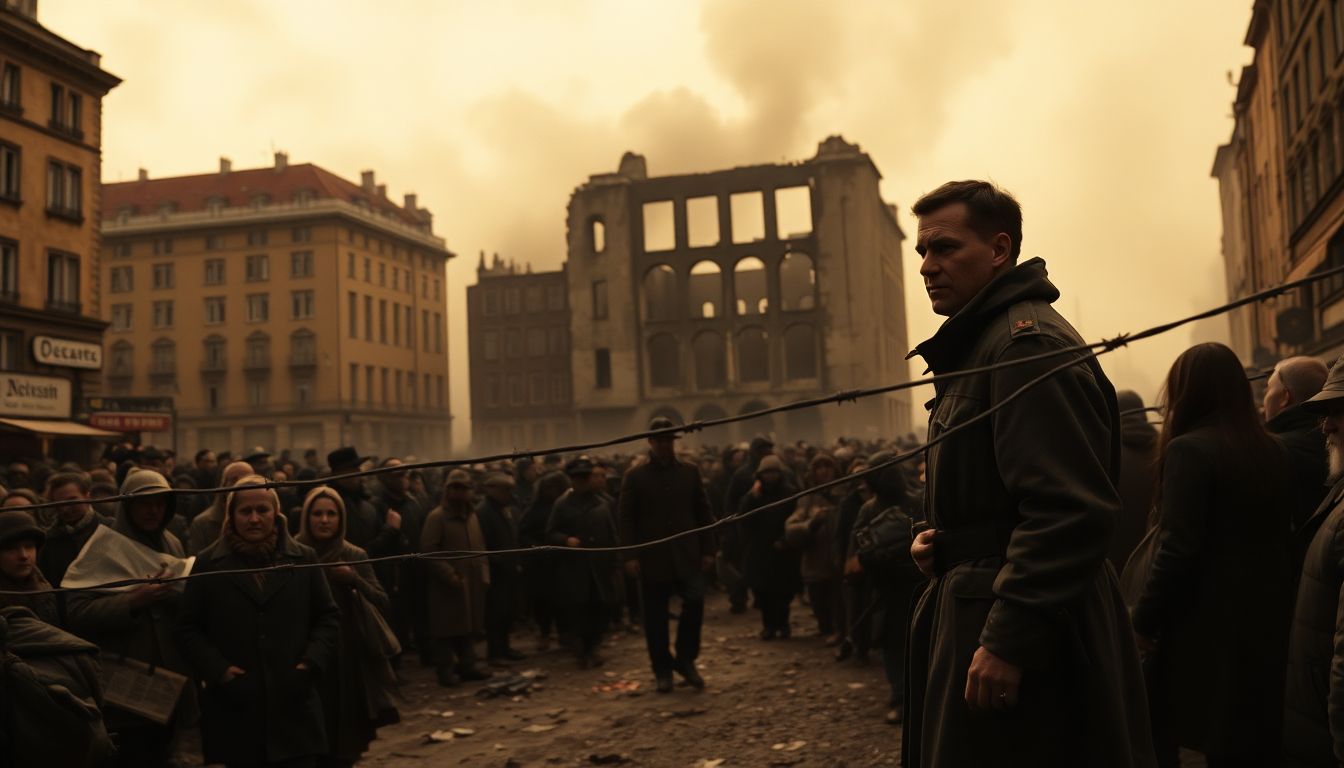
How Did the World Wars Start? Unraveling the Causes and Contributing Factors
Imagine a world teetering on the brink. Simmering tensions explode into global conflict. World War I and World War II were the biggest and most awful conflicts in modern history. This article will explore the reasons behind these wars. We'll look at the political, economic, and social factors that made them happen.
The Powder Keg of Europe: Seeds of World War I
Europe was like a powder keg ready to explode. There were long-term tensions and rivalries. These set the stage for World War I.
Nationalism and Imperialism: A Dangerous Combination
Nationalism is when people are really proud of their country. Imperialism is when a country wants to take over other lands. Germany and Austria-Hungary were very nationalistic. They wanted to expand their power. European countries competed for colonies in Africa and Asia. This caused conflicts of interest.
The Alliance System: Entangling Agreements
Many countries made alliances. The Triple Alliance included Germany, Austria-Hungary, and Italy. The Triple Entente included France, Russia, and Great Britain. If two countries fought, their allies had to help. This meant a small fight could become a big war.
Militarism and the Arms Race: Preparing for War
Militarism is when a country builds up its military. Britain and Germany were in a naval race. They both wanted the biggest navy. This made war seem inevitable. Everyone was preparing for it.
The Spark: Assassination in Sarajevo
The assassination in Sarajevo was the immediate trigger. It started World War I.
Archduke Franz Ferdinand: A Target of Opportunity
Archduke Franz Ferdinand was going to be the next leader of Austria-Hungary. Gavrilo Princip, a Serbian nationalist, killed him. This happened in Sarajevo. Princip wanted Serbia to be free from Austria-Hungary.
Austria-Hungary's Ultimatum: A Deliberate Provocation
Austria-Hungary gave Serbia a list of demands. These demands were very harsh. Austria-Hungary wanted to punish Serbia. Serbia rejected some of the demands. Austria-Hungary then declared war.
The Domino Effect: Alliances Triggered
Austria-Hungary declared war on Serbia. Russia helped Serbia. Germany helped Austria-Hungary. France and Great Britain helped Russia. The alliance system pulled everyone into the war.
The Interwar Years: A Breeding Ground for World War II
The years between World War I and World War II were difficult. They created problems. These problems helped cause World War II.
The Treaty of Versailles: A Peace Built on Resentment
The Treaty of Versailles ended World War I. It punished Germany severely. Germany lost land and had to pay a lot of money. Its military was limited. This made Germans angry and wanting revenge.
The Great Depression: Economic Instability and Extremism
The Great Depression was a time of economic hardship. It hit Europe hard. People lost their jobs and money. This made them look for extreme solutions. Fascism and Nazism became popular.
The Rise of Fascism and Nazism: A Threat to Democracy
Fascism rose in Italy under Mussolini. Nazism rose in Germany under Hitler. These ideas promoted nationalism and strong leaders. They threatened democracy. They also wanted to expand their countries.
Aggression and Appeasement: The Road to War
Axis powers started to become aggressive. Western powers tried to appease them. This made things worse.
Japanese Expansionism: Conquest in Asia
Japan started taking over land in Asia. It invaded Manchuria and China. This showed Japan's aggressive plans.
Hitler's Expansionist Policies: Violating the Treaty
Hitler broke the Treaty of Versailles. He rebuilt Germany's military. He took over Austria and Czechoslovakia.
The Failure of Appeasement: Giving in to Aggression
Britain and France tried to appease Hitler. They hoped to avoid war. This policy failed. It only made Hitler bolder. Neville Chamberlain, the British Prime Minister, famously said he achieved "peace for our time". But his appeasement policy ultimately failed.
The Spark Ignites Again: Invasion of Poland
The invasion of Poland triggered World War II.
Hitler's Ambitions: Lebensraum in the East
Hitler wanted "Lebensraum" or living space in Eastern Europe. He wanted to take over land for Germany.
The Nazi-Soviet Pact: A Temporary Alliance
Germany and the Soviet Union signed a non-aggression pact. This was called the Molotov-Ribbentrop Pact. It allowed Hitler to invade Poland without worrying about the Soviet Union.
September 1, 1939: The Invasion Begins
Germany invaded Poland on September 1, 1939. Britain and France then declared war on Germany. World War II had begun.
Conclusion: Lessons Learned and the Enduring Legacy
World War I and World War II had many causes. Nationalism, imperialism, alliances, and militarism all played a role. The Treaty of Versailles and the Great Depression created more problems. The rise of fascism and appeasement made things worse. Understanding history is important. We can learn from these mistakes. We can work for diplomacy, cooperation, and human rights. These wars had a lasting impact on the world. We must never forget them.

0 Comments